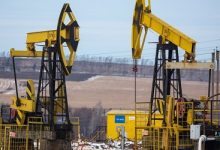
The International Monetary Fund has revised Ghana’s growth rate for this year, from 4.2 per cent to 4.6 per cent this year.
In its latest updated World Economic Outlook Report the Fund also projected an impressive Gross Domestic Product (GDP) growth rate of 6.1 per cent for next year.
According to the Fund, Ghana’s growth rate would be higher than Sub Saharan Africa’s regional average of 3.4 per cent in 2021.
Data from the Bank of Ghana had indicated that the economy was on a rebound with a sustained momentum in pick-up in economic activity.
This follows an annual growth of 13.9 per cent of the Bank of Ghana’s updated Composite Index of Economic Activity, the highest since December 2019.
The Finance Ministry has also projected a growth rate of 5.0 per cent for this year.
Sub Saharan Africa growth
The Fund said the COVID-19 pandemic continues to exact a large toll on sub-Saharan Africa, especially Ghana, Kenya, Nigeria, South Africa.
“Following the largest contraction ever for the region (-1.9 per cent in 2020), growth is expected to rebound to 3.4 per cent in 2021, significantly lower than the trend anticipated before the pandemic. Tourism-reliant economies will likely be the most affected,” it said.
Global growth
Beyond 2022, the IMF said global growth is projected to moderate to 3.3 per cent into the medium term.
“Persistent damage to supply potential across both advanced and emerging market economies and slower labour force growth because of population aging, largely in advanced economies, but also in a few emerging market economies, and necessary rebalancing to a sustainable growth path in China, are all expected to weigh on the growth outlook for the global economy in the medium term,” it said.
“GDP levels are projected to remain well below the pre-pandemic trend path through 2024 for most countries,” it emphasised.
Rising commodity prices
Consistent with the projected global recovery, oil prices are projected to grow 30 per in 2021 from their low base in 2020, in part reflecting the OPEC+ (Organisation of the Petroleum Exporting Countries, including Russia and other non-OPEC oil exporters) supply curbs.
Metal prices are also projected to accelerate strongly in 2021, largely reflecting the rebound in China. Food prices are also expected to pick up this year.







